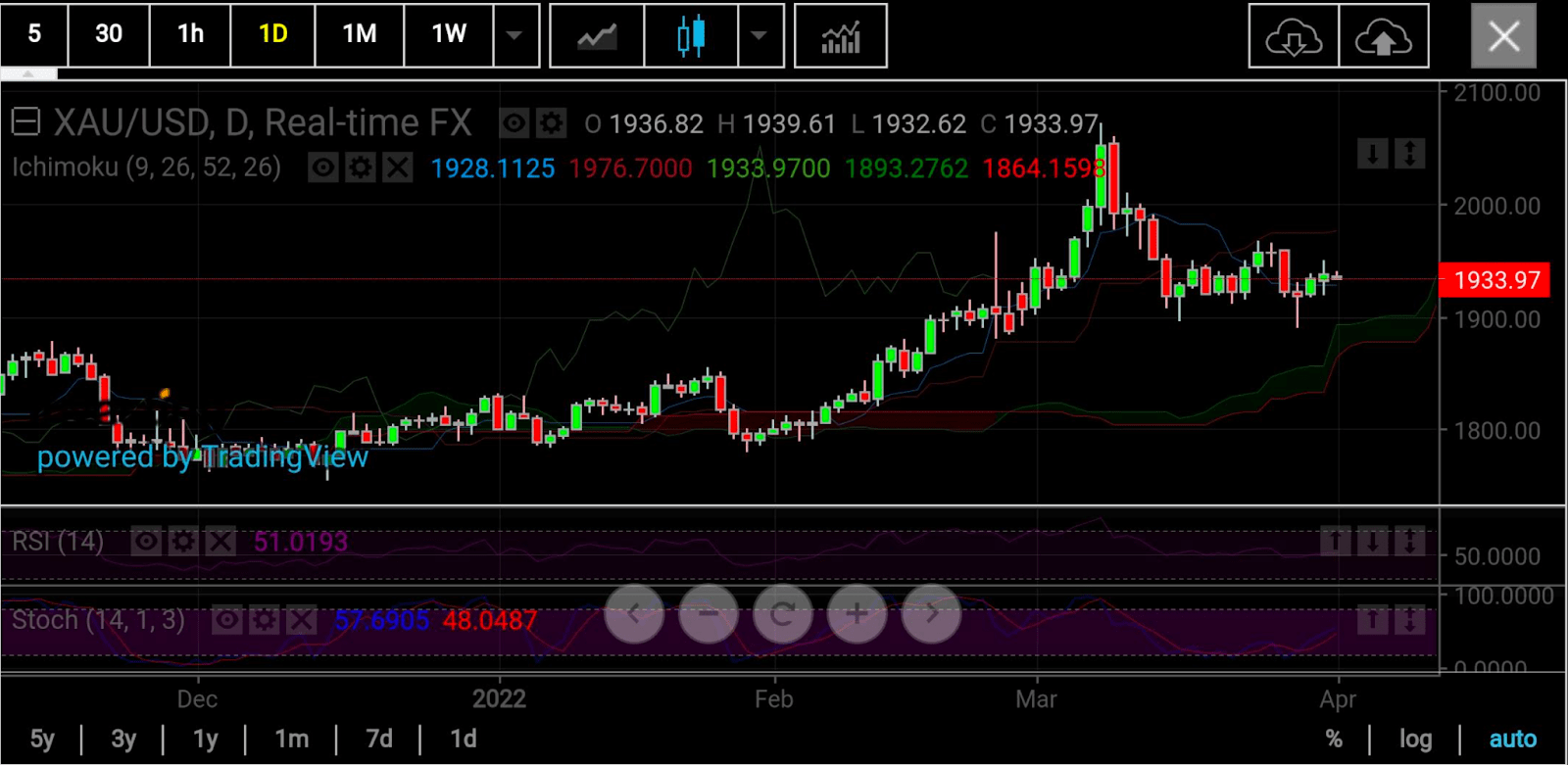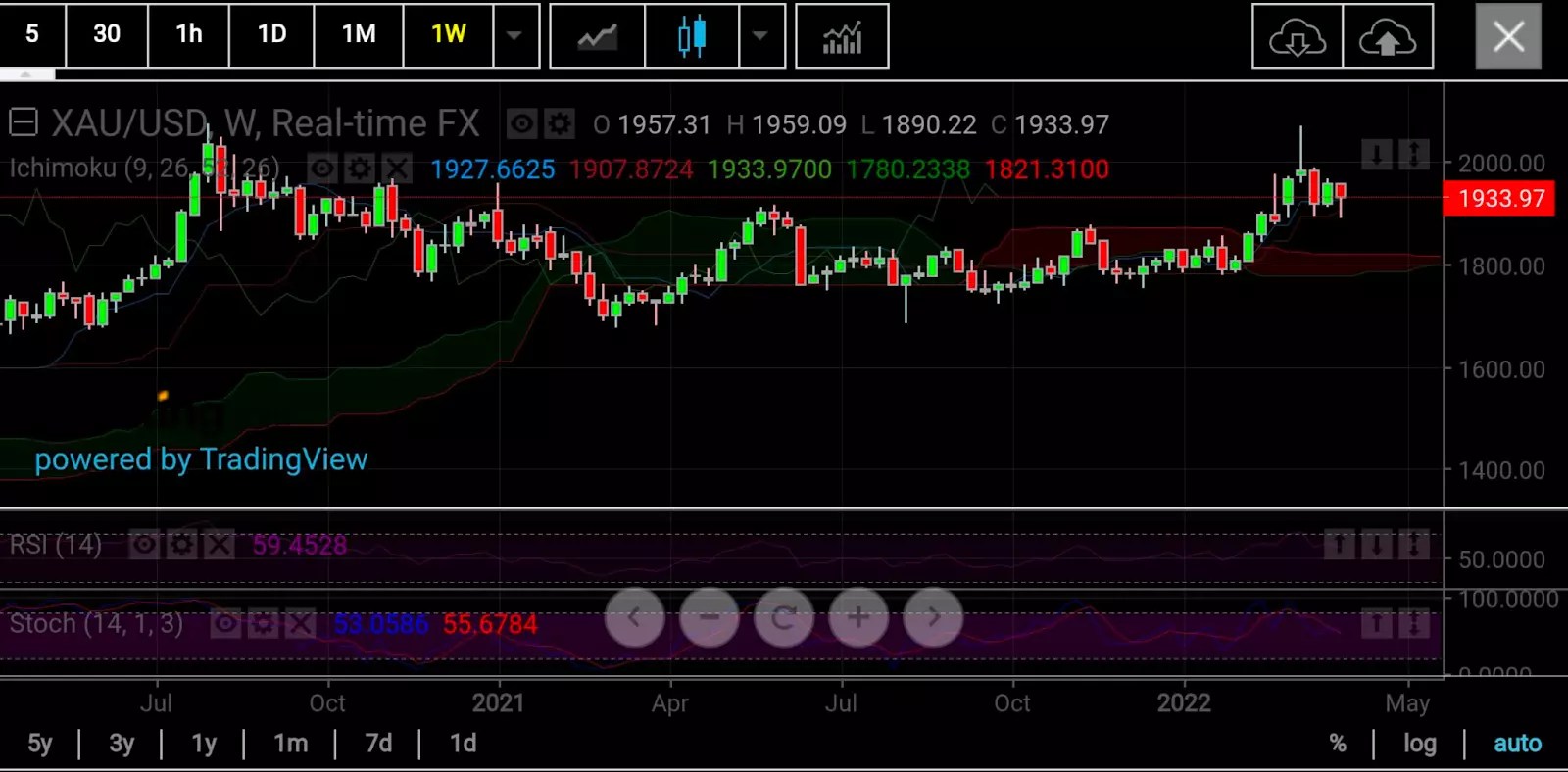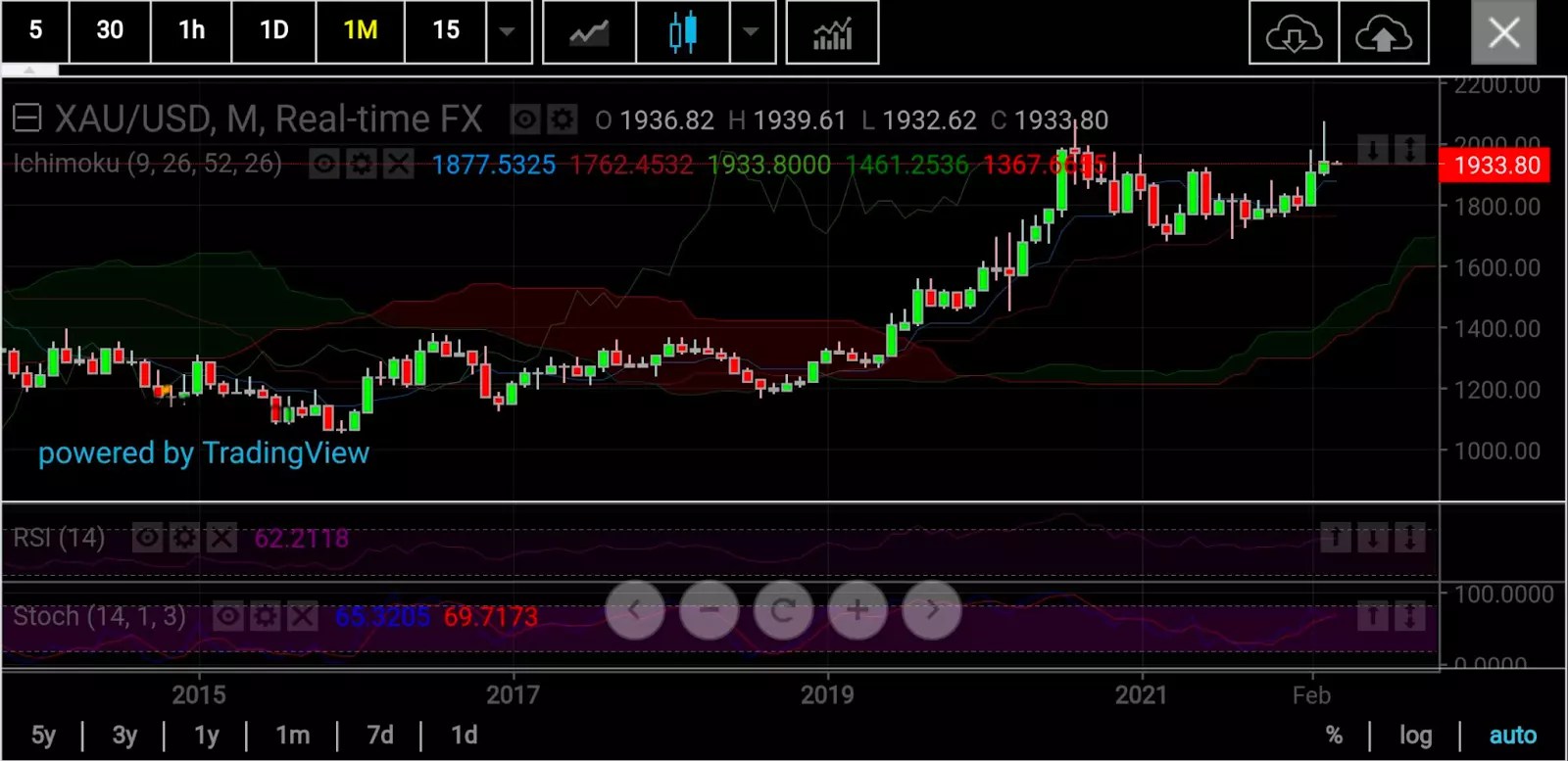So, gold got the standing ovation it deserved for its first-quarter showing? Great.
Now, the next big question: Will it soon make the record-high that longs in the game have been expecting for a while? Unfortunately, that seems a little more elusive, if the quarter that just ended is any indicator.
As trading for April opened on Friday, the most active gold futures contract on New York’s COMEX hovered at $1,935 an ounce in the Asian trading window.
A day ago, that gold futures benchmark settled at $1,949.20.
That gave it a 2.6% gain for March and a 6.6% rise for all the first quarter.
 Gold Daily
Gold Daily
All charts courtesy of skcharting.com
The last time COMEX gold gained more in a three-month period was when it rose 14% in the second quarter to June 2020.
Even so, gold failed to make a record high in March despite turbo-charged US inflation and geopolitical tensions bubbling in the aftermath of Russia’s invasion of Ukraine. The yellow metal is seen as a protection against such economic and political troubles.
On Mar. 8, COMEX gold peaked at $2,078.80—coming $43 short of matching its August 2020 record of $2,121.70.
The spot price of gold went to $2,070.29 that same day, leaving an even narrower gap—of less than $4—versus its August 2020 peak of $2,073.41.
To chartists, the yellow metal’s failure to beat its 2020 high was illustrative of the yellow metal’s equally-potent superior and vulnerable sides.
On the weaker side, gold’s technical foundations were damaged when it hit one-month lows under $1,900 on Tuesday, reaching $1,888.30 on COMEX and $1,890.03 on the spot market.
 Gold Weekly
Gold Weekly
“Gold’s rejection from the top isn’t new, rather it’s a trend,” said Sunil Kumar Dixit, chief technical strategist at skcharting.com.
Dixit, who uses the spot price to make his calls, said physical bullion first faced rejection at $2,070, then cascaded to $1,966 before the “panic selling” that took it to the $1,890 level.
“The immediate rebound of $60 that followed from there to $1,950 shows that rallies are discounted and controlled by bearish forces,” said Dixit.
In the short term, he sees spot gold straddling a tight $80 range that will enable it to move in the $1,970 to $1,890 band as the Federal Reserve tries to stop runaway US inflation in its stride with a series of rate hikes.
“Breaking below $1,890 can expose the metal to $1,810, though a decisive break above $1,970 can make way for a new peak of $2,050. For the short term though, gold appears to be confined within the $2,000 range.”
Craig Erlam, an analyst at online trading platform OANDA, concurs with that.
“Gold will find major resistance at the $1,970 level, but if that isn’t much of a barrier a clear path to $2,000 could emerge,” he said. Adding that the precious metal should remain “headline-driven,” especially on inflation and the Russia-Ukraine conflict.
 Gold Monthly
Gold Monthly
Inflation has been one of the biggest propelling factors for gold prices this year.
US price pressures, as measured by the Consumer Price Index (CPI) grew 7.0% in 2021, and 7.9% during the year to February—both at their fastest in four decades. The CPI’s expansion outpaces economic growth at 5.7% last year and is projected by the Fed at 2.8% this year.
The Fed has a mere tolerance of 2% for inflation in a year and many policy-makers at the central bank have vowed to bring inflation back to their target with as many as seven rate hikes this year and more through 2023.
The Fed approved its first pandemic-era rate hike on Mar. 16, raising rates by 25 basis points. Now, various members of its policy-making Federal Open Market Committee, led by Chairman Jerome Powell, are considering back-to-back hikes of 50 basis points at their next meetings in May and June.
“Keep in mind, prior to Russia’s invasion of Ukraine, the outlook was looking rather bleak for the precious metal as the Fed was preparing to embark on the most aggressive tightening cycle in decades,” said Justin McQueen, a gold strategist who blogs on the Daily FX platform.
“This remains the case, and perhaps even more so, as Powell and Co. look to hike rates in 50bps clips.”
“Therefore, it is important for gold traders to once again focus on real yields for direction, which as it stands, points to lower gold prices,” McQueen said, referring to the rate set by the 10-year US Treasury note yield.
The 10-year yield typically runs contrary to gold’s direction and was up on Friday for the first time in six days.
“From a technical perspective, gold is neutral and while I am leaning towards the downside in the precious metal, bearish conviction will grow on a break below $1,880,” McQueen added.
Disclaimer: Barani Krishnan uses a range of views outside his own to bring diversity to his analysis of any market. For neutrality, he sometimes presents contrarian views and market variables. He does not hold positions in the commodities and securities he writes about.
Source: Investing.com






























